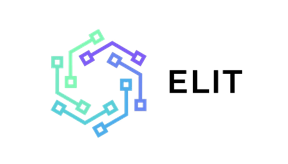ENTREPRENEURSHIP BAROMETER AND E-LEARNING IN TECH STARTUPS CONTEXT
Abstract
This paper seeks to understand students’ attitude towards entrepreneurship, their intentions to start their own companies, and then to propose improvements in the educational process or university infrastructure in order to develop students’ entrepreneurial behaviour, give them the opportunity to gain experience as startupers. The work is based on the experience of implementing e-learning as a practical part within the course “Innovation and Entrepreneurship in IT”, which is taught to undergraduate students in the department of Electronics and Computer Technology at Ivan Franko National University of Lviv, Ukraine. As an underlying method, the“A4 approach” for designing virtual learning environments (Attention, Actualisation, Attraction and Action) was used. An interactive online system “Entrepreneurship Barometer” was developed to monitor students’ knowledge about entrepreneurship and their entrepreneurial mindset.
Our results highlight the importance of project-based e-learning in Tech Startup context as key components in developing entrepreneurial competences, also, for improving students’ attitudes towards entrepreneuring, the value of inter-disciplinary teams during all startup growth phases.
Keywords: e-learning, tech startup, entrepreneuring, entrepreneurship barometer, virtual learning environment.
Full Text:
PDFReferences
Katernyak, I., Loboda, V. (2016). Cognitive presence and effect of immersion in virtual learning environment // Universal Journal of Education Research: Horizon Research Publishing Corporation. 2016. 4 (11). Retrieved from: http://www.hrpub.org/journals/article_info.php?aid=5254
Loboda, V., Katernyak, I. et al. (2018). Developing Entrepreneurial Mindset in University Undergraduates // E-Methodology. 2016.5 (5). – P. 114-131.
Katernyak, I. (2018). Towards Creating Innovation Hub in IT – Strategy for Entrepreneurship Education at Ivan Franko National University of Lviv // International Scientific and Practical Conference "Electronics and Information Technologies" (ELIT-2018). Retrieved from: http://elct.lnu.edu.ua/elit_conf/pdf/10/10_A11.pdf
Neck, H. M., Greene, P. G. (2011). Entrepreneurship education: known worlds and new frontiers // Journal of small business management. 2011. 49.1. – P. 55-70.
Katernyak I., Loboda V. (2021). Entrepreneurial Momentum for Sustainable Growth. Sustainable Organizations – Models, Applications, and New Perspectives, Jose C. Sánchez-García and Brizeida Hernández-Sánchez, IntechOpen. doi: 10.5772/intechopen.95099. Retrieved from: https://www.intechopen.com/books/sustainable-organizations-models-appli№cations-and-new-perspectives/entrepreneurial-momentum-for-sustainable-growth
Ries, E. (2011). The Lean Startup: How Today's Entrepreneurs Use Continuous Innovation to Create Radically Successful Businesses. Crown Publishing, 103 p.
Osterwalder, A., Pigneur, Y., Tucci, C. L. (2005). Clarifying business models: origins, present, and future of the concept // Communications of the Association for Information Systems. 2005. 16 (1): 1. doi:10.17705/1CAIS.01601
DOI: http://dx.doi.org/10.30970/eli.15.3
Refbacks
- There are currently no refbacks.

 Electronics and information technologies / Електроніка та інформаційні технології
Electronics and information technologies / Електроніка та інформаційні технології